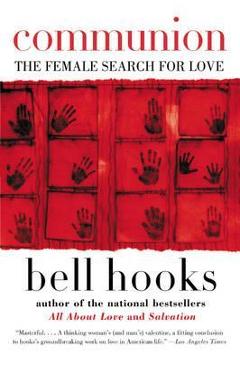Teaching Community: A Pedagogy of Hope - Bell Hooks

Detalii Teaching Community: A Pedagogy of
Vânzător
libris.ro
Pret
301.84 Lei
301.84 Lei
335.38 Lei
Categorie (vânzător)
Education
Marca
Bell Hooks
Descriere YEO:
Descriere magazin:
Combining critical thinking about education with autobiographical narratives, hooks invites readers to extend the discourse of race, gender, class and nationality beyond the classroom into everyday situations of learning. Ten years ago, bell hooks astonished readers with Teaching to Transgress: Education as the Practice of Freedom . Now comes Teaching Community: A Pedagogy of Hope - a powerful, visionary work that will enrich our teaching and our lives. Combining critical thinking about education with autobiographical narratives, hooks invites readers to extend the discourse of race, gender, class and nationality beyond the classroom into everyday situations of learning. bell hooks writes candidly about her own experiences. Teaching, she explains, can happen anywhere, any time - not just in college classrooms but in churches, in bookstores, in homes where people get together to share ideas that affect their daily lives. In Teaching Community bell hooks seeks to theorize from the place of the positive, looking at what works. Writing about struggles to end racism and white supremacy, she makes the useful point that No one is born a racist. Everyone makes a choice. Teaching Community tells us how we can choose to end racism and create a beloved community. hooks looks at many issues-among them, spirituality in the classroom, white people looking to end racism, and erotic relationships between professors and students. Spirit, struggle, service, love, the ideals of shared knowledge and shared learning - these values motivate progressive social change. Teachers of vision know that democratic education can never be confined to a classroom. Teaching - so often undervalued in our society -- can be a joyous and inclusive activity. bell hooks shows the way. When teachers teach with love, combining care, commitment, knowledge, responsibility, respect, and trust, we are often able to enter the classroom and go straight to the heart of the matter, which is knowing what to do on any given day to create the best climate for learning.

Teaching Community: A Pedagogy of - Disponibil la libris.ro
Pe YEO găsești Teaching Community: A Pedagogy of de la Bell Hooks, în categoria Education.
Indiferent de nevoile tale, Teaching Community: A Pedagogy of Hope - Bell Hooks din categoria Education îți poate aduce un echilibru perfect între calitate și preț, cu avantaje practice și moderne.
Preț: 301.84 Lei
Caracteristicile produsului Teaching Community: A Pedagogy of
Comandă Teaching Community: A Pedagogy of Online, Simplu și Rapid
Prin intermediul platformei YEO, poți comanda Teaching Community: A Pedagogy of de la libris.ro rapid și în siguranță. Bucură-te de o experiență de cumpărături online optimizată și descoperă cele mai bune oferte actualizate constant.
Descriere magazin:
Combining critical thinking about education with autobiographical narratives, hooks invites readers to extend the discourse of race, gender, class and nationality beyond the classroom into everyday situations of learning. Ten years ago, bell hooks astonished readers with Teaching to Transgress: Education as the Practice of Freedom . Now comes Teaching Community: A Pedagogy of Hope - a powerful, visionary work that will enrich our teaching and our lives. Combining critical thinking about education with autobiographical narratives, hooks invites readers to extend the discourse of race, gender, class and nationality beyond the classroom into everyday situations of learning. bell hooks writes candidly about her own experiences. Teaching, she explains, can happen anywhere, any time - not just in college classrooms but in churches, in bookstores, in homes where people get together to share ideas that affect their daily lives. In Teaching Community bell hooks seeks to theorize from the place of the positive, looking at what works. Writing about struggles to end racism and white supremacy, she makes the useful point that No one is born a racist. Everyone makes a choice. Teaching Community tells us how we can choose to end racism and create a beloved community. hooks looks at many issues-among them, spirituality in the classroom, white people looking to end racism, and erotic relationships between professors and students. Spirit, struggle, service, love, the ideals of shared knowledge and shared learning - these values motivate progressive social change. Teachers of vision know that democratic education can never be confined to a classroom. Teaching - so often undervalued in our society -- can be a joyous and inclusive activity. bell hooks shows the way. When teachers teach with love, combining care, commitment, knowledge, responsibility, respect, and trust, we are often able to enter the classroom and go straight to the heart of the matter, which is knowing what to do on any given day to create the best climate for learning.





